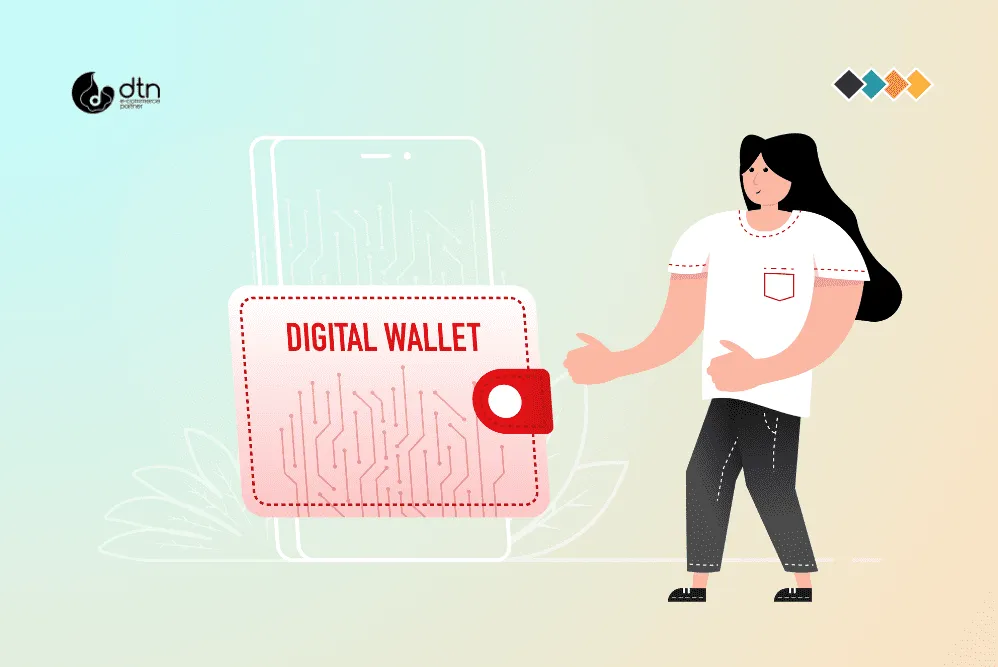In today’s digitally-driven world, e-commerce has become a cornerstone of modern business. As online shopping continues to boom, businesses are constantly seeking ways to enhance customer experience and streamline their checkout processes. One key aspect of this evolution is the seamless integration of digital wallets.
This blog post delves deep into the world of e-commerce digital wallet integration, covering its significance, benefits, types, implementation steps, and crucial considerations.
Table of Contents
Why Digital Wallets Matter in E-commerce
Digital wallets, also known as mobile wallets or e-wallets, are software applications that allow users to store their payment and personal information securely on their mobile devices or computers. They offer a convenient and secure alternative to traditional payment methods like credit cards and debit cards.
Here’s why integrating digital wallets is vital for e-commerce businesses:
- Enhanced Customer Experience: Digital wallets provide a frictionless checkout experience, eliminating the need for users to manually enter their payment information repeatedly. This convenience drives customer satisfaction and loyalty.
- Increased Conversion Rates: Faster and easier checkout processes lead to fewer abandoned carts, boosting overall conversion rates and driving sales growth.
- Improved Security: Digital wallets employ advanced encryption and security measures, providing greater protection against fraud and data breaches compared to traditional payment methods.
- Growing Popularity: Digital wallets like Apple Pay, Google Pay, and Samsung Pay are rapidly gaining popularity globally, making it essential for businesses to cater to this growing user base.
- Global Reach: Digital wallets offer a universal payment solution, allowing businesses to accept payments from customers across different countries and regions without the complexities of multiple payment gateways.

Types of Digital Wallets
E-commerce businesses can choose from a variety of digital wallets to integrate into their platforms:
- Mobile Wallets: These wallets are accessible through smartphone applications, offering convenient payments through NFC technology or QR codes. Popular examples include Apple Pay, Google Pay, Samsung Pay, and PayPal.
- Online Wallets: These wallets are web-based platforms where users can store their payment information and make online payments. Examples include PayPal, Stripe, and Skrill.
- Cryptocurrency Wallets: These wallets are specifically designed to store and manage cryptocurrencies like Bitcoin, Ethereum, and Litecoin. Popular options include Coinbase Wallet, MetaMask, and Blockchain.com Wallet.

Steps to Integrate Digital Wallets into Your E-commerce Platform
Integrating digital wallets into your e-commerce platform typically involves the following steps:
- Choose a Payment Gateway: Select a payment gateway that supports the digital wallets you want to integrate. Major payment gateways like Stripe, PayPal, and Adyen offer seamless integration with popular digital wallets.
- Enable Digital Wallet Options: Once you’ve chosen your payment gateway, enable the specific digital wallets you want to offer. This involves configuring your payment gateway settings and providing the necessary API keys.
- Implement the Integration Code: The payment gateway will provide you with integration code that needs to be implemented into your e-commerce platform’s checkout process. This may involve modifications to your website’s front-end and back-end code.
- Test Thoroughly: After integration, thoroughly test the functionality of the digital wallet options to ensure seamless checkout experience for your customers.
- Market and Promote: Once the integration is complete, promote the availability of digital wallet options to your customers through your website, social media, and email marketing campaigns.

Key Considerations for Digital Wallet Integration
- Security and Compliance: Ensure the chosen digital wallet provider adheres to industry standards for security and compliance, including PCI DSS compliance.
- Transaction Fees: Different digital wallet providers have varying transaction fees. Choose a provider with competitive fees that align with your business needs.
- Customer Support: Consider the level of customer support offered by the digital wallet provider. Ensure they have responsive and reliable support to address any issues that may arise.
- International Payments: If you cater to an international customer base, ensure the chosen digital wallet provider supports international payments in multiple currencies.
- Scalability: Choose a digital wallet provider that can handle your business’s current and future transaction volumes.

The Future of Digital Wallets in E-commerce
Digital wallets are transforming the way e-commerce businesses operate. They offer a user-friendly and secure payment experience, fostering customer loyalty and driving sales growth. As the adoption of digital wallets continues to rise, it’s crucial for e-commerce businesses to embrace this technology and stay ahead of the curve.
Integrating digital wallets into your e-commerce platform is no longer an option but a necessity for success in today’s digital landscape. By leveraging the convenience, security, and growing popularity of digital wallets, businesses can enhance customer experience, boost conversion rates, and solidify their competitive edge in the rapidly evolving world of e-commerce.
Frequently Asked Questions
We’ve compiled a list of answers to common questions.
What types of digital wallets can be integrated into e-commerce platforms?
Types include mobile wallets (e.g., Apple Pay, Google Pay), online wallets (e.g., PayPal, Stripe), and cryptocurrency wallets (e.g., Coinbase Wallet, MetaMask).
What are the key steps to integrating digital wallets into an e-commerce site?
Key steps include choosing a compatible payment gateway, enabling wallet options, implementing integration code, testing thoroughly, and promoting the new payment options.
What benefits do digital wallets offer to e-commerce businesses?
Benefits include enhanced customer experience, increased conversion rates, improved security, catering to a growing user base, and facilitating global transactions.
What should businesses consider when integrating digital wallets?
Consider security and compliance, transaction fees, customer support, international payment capabilities, and scalability for future growth.



